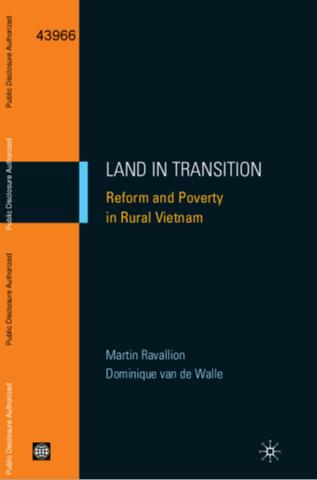Land Rights and Economic Development : Evidence from Vietnam
The authors examine the impact of land
reform in Vietnam which gives households the power to
exchange, transfer, lease, inherit, and mortgage their
land-use rights. The authors expect this change to increase
the incentives as well as the ability to undertake long-term
investments on the part of households. Their
difference-in-differences estimation strategy takes
advantage of the variation across provinces in the issuance


